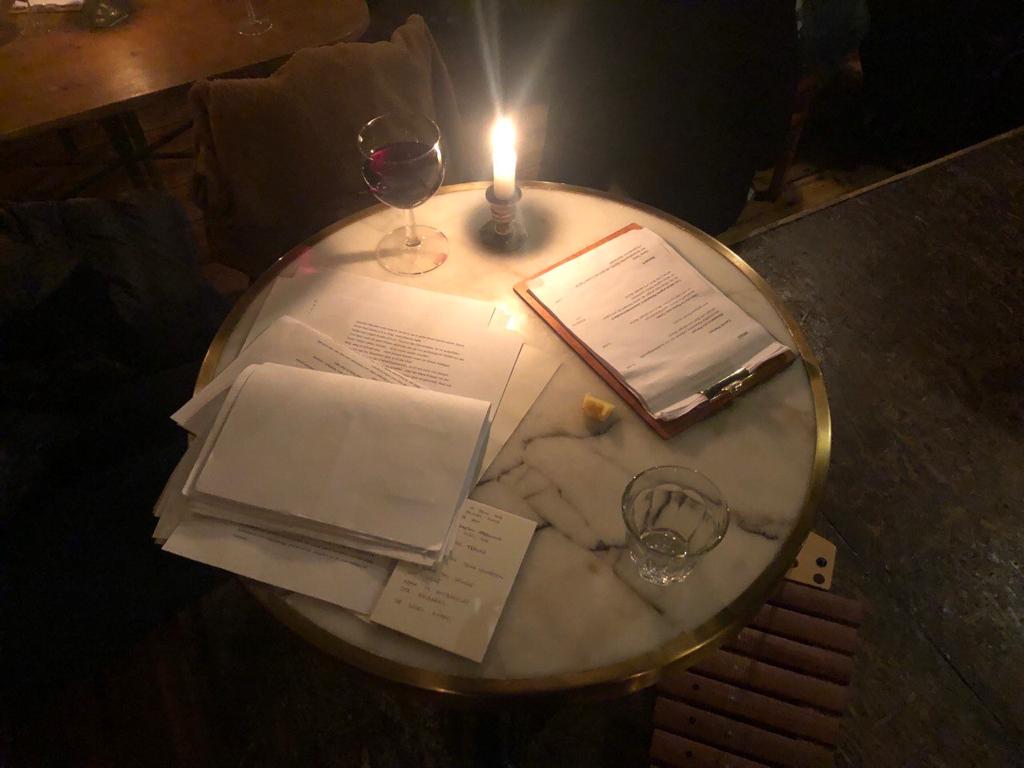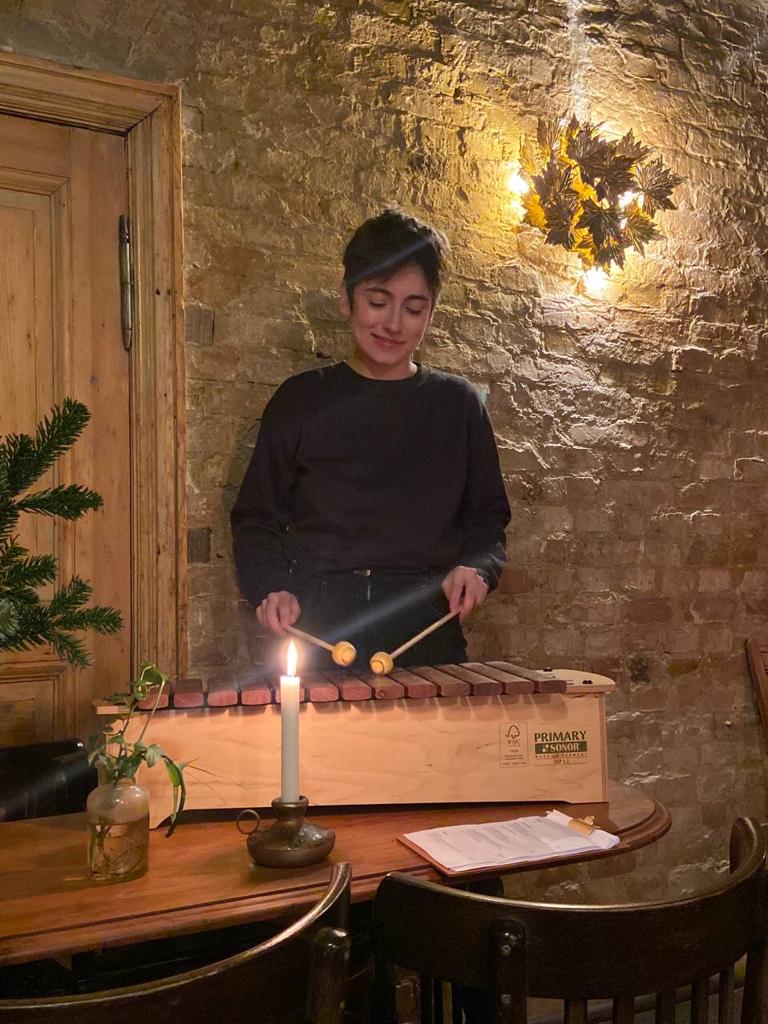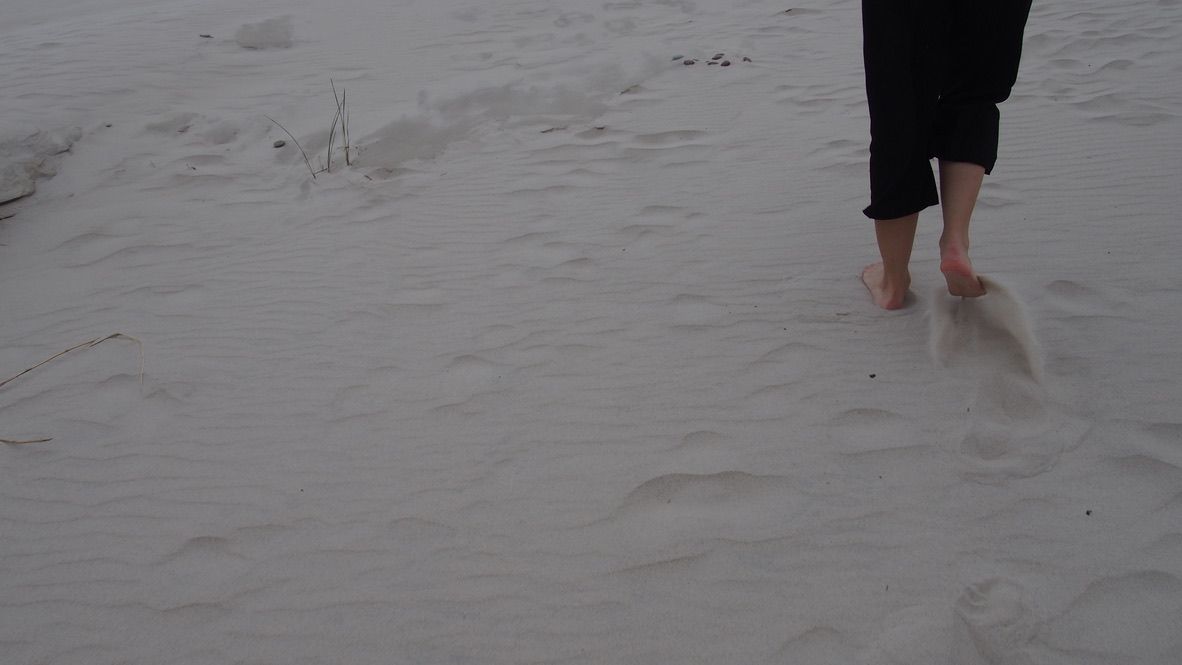Berlin
Reading and Poetic Interventions to Question Canonical Ways of Writing
04.01.2023, 19:00–22:00 (CET)
- Europe
- Lab
As a freelance artist and activist, Anna combines methods from performance art and pedagogy that aim to create spaces for shared experiences to explore and strengthen the abilities of everyone involved. She organizes readings and poetic interventions that question canonical ways of writing. Anna is committed to initiatives such as Careleaver e.V., a self-organized association of people who have grown up in state care.
Kinesthetic Writings
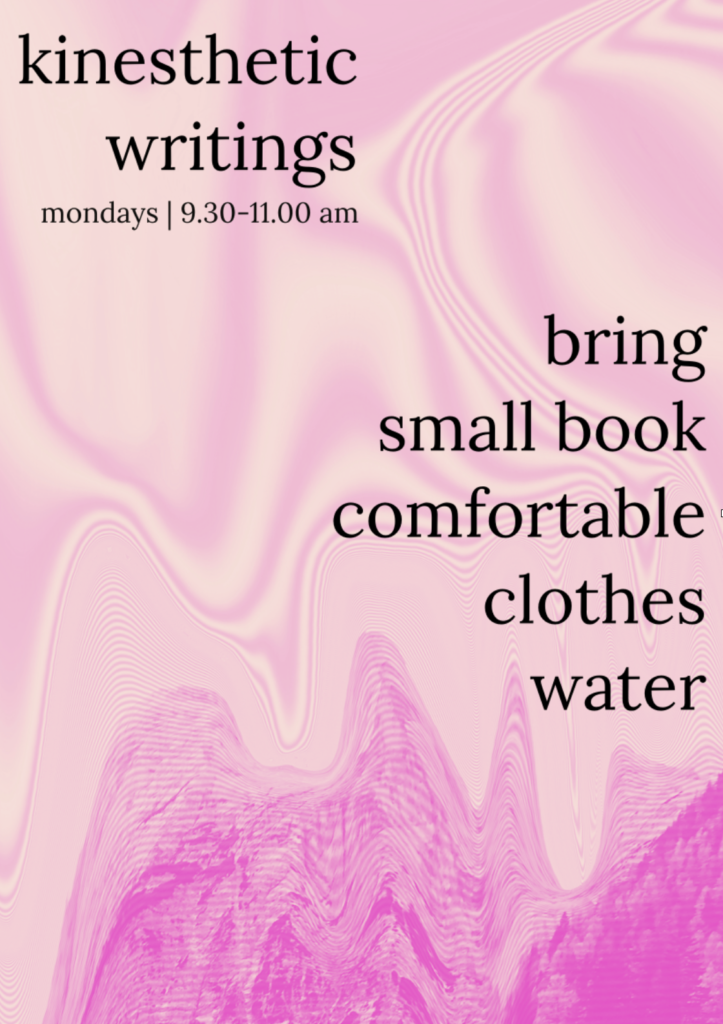
In care work, the term kinesthetics refers to a method that involves learning and developing movement sequences together that are tailored to individual abilities. It makes mobilization easier and more pleasant for both the carer and the person in need of care. When moving together, individual (physical) preferences and limitations are equally incorporated into the movement. The kinesthetic writing method aims to combine writing with joint movement and the perception of impulses. It aims to be a friendly space in which abilities and disabilities can be explored and further developed. It wants to be an anti-patriarchal and horizontal space that resists the pale gaze of violent judges. Kinesthetic writing moves (body) language through impulses and studies impulses through and in movement. It sees itself as an artistic and activist experiment and as an ongoing approach. It wants to perceive, reject, love and create words and movements, worlds and memories.
Reading night

Fragments are honest, unpolished, raw and wild. Fragments are beginnings or moments of being in-between. Our reading night is about the unfinished, the broken off and the breaking open, the wild search for careful and clear words in a world that can no longer be put together into an unified narrative. In an act of togetherness, we combine eating cheese with sitting together and listening to raw and fragile material. In this space, we understand thinking as a form of digestion. In order to digest, we need to feel good. So let’s speak gently and kind, find pathways and refuse to create full stops.
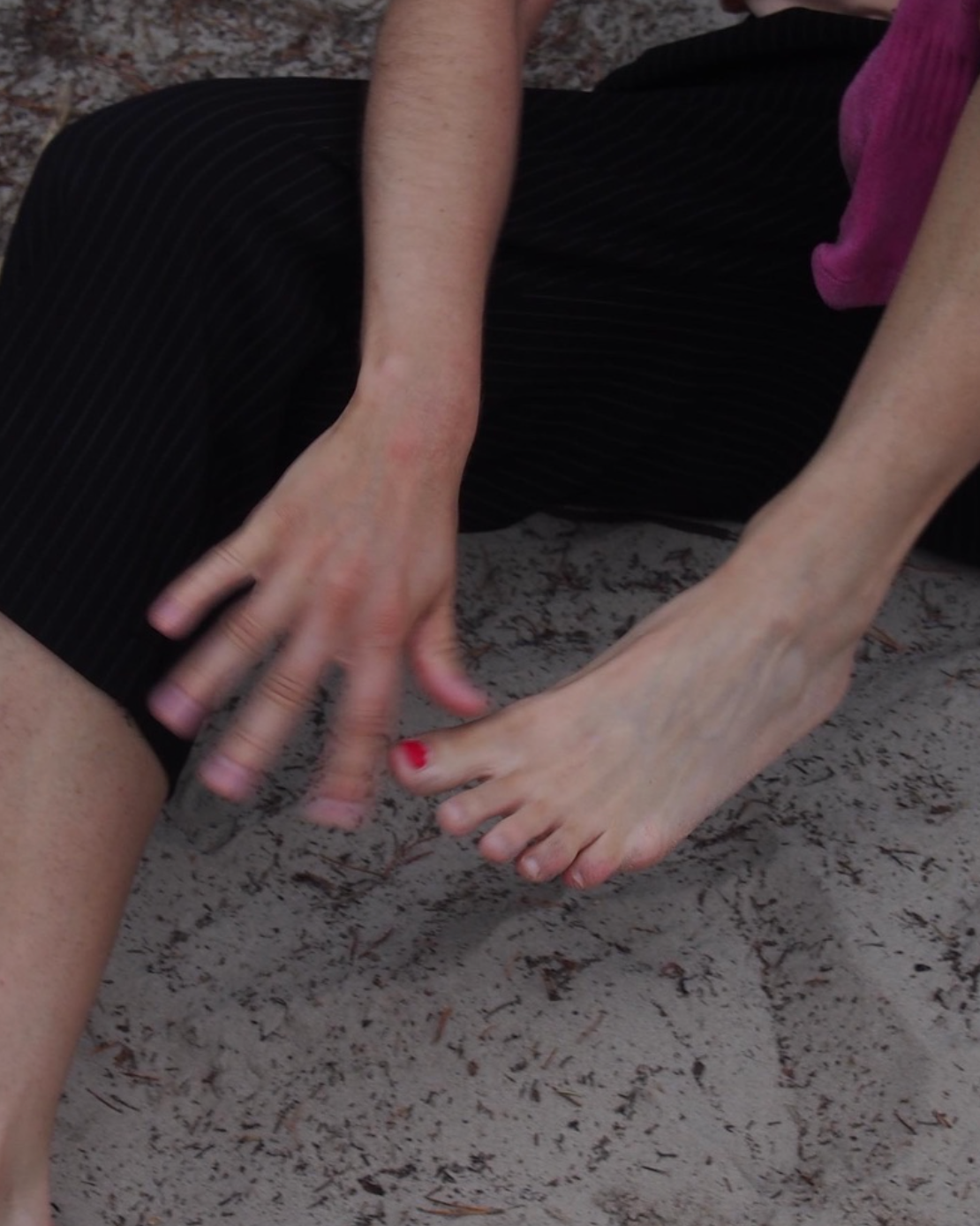
n publications critical of classism care leavers are named as a group particularly affected by classism. However, so far there has been little space for the coming together and dialog of care leavers themselves, who speak as experts about the realities of the foster care and residential youth welfare system and its classist structures. In order to move care leavers from a position in which they are spoken about to a position as speakers, we will archive the voices of various care leavers who are both affected and activists and record the results of our archiving. Archiving self-articulated perspectives that collect people’s experiences, especially in spaces where they are with other people with shared experiential knowledge, has in the past repeatedly led to the emergence of specific, positioned knowledge about marginalized positions. This knowledge could be used in the fight against injustice. By archiving self-articulated voices, the public, including political decision-makers, is made aware of people’s concerns and needs. As care leavers organized in self-advocacy groups, we enter into conversation via the exchange of voice messages. The transcripts of these conversations serve as transcripts for a publication called Klassismus(kritik) und Soziale Arbeit by Francis Seek and Claudia Steckelberg that will be published in Spring 2024.
Moments of Care

From Kaspar Hauser to Kleist’s foundling to Momo – parentless children are an important and fascinating trope in German literature. As charismatic and mythicized figures, they hover between conceptions of autonomy and self-determination, resistance and adaptability. These literary figures allow access to a variety of themes that can be linked to contemporary debates and issues. In Kleist’s foundling and Kaspar Hauser there are anthropological questions about the body and sexuality, “nature” and “naturalness”, “foreignness” and orality. In Momo, capitalized and administrative forms of life play a decisive role. What social constellations are those children embedded in? How does the environment react to these characters who seem to come “out of nowhere” and on whose development the future of society as a whole seems to depend? By juxtaposing and linking a memory of a person who was in a youth welfare setting with literary and social representations, memories and moments from youth welfare are to become visible as a poetic-associative fabric and at the same time supplement representative approaches with a self-articulated perspective.
Anna is currently the project manager of a participation project for foster children, which has been approaching the ideas of a community future with artistic means.
Anna Kücking
Anna is a versatile practitioner whose work combines art, research and social work.
